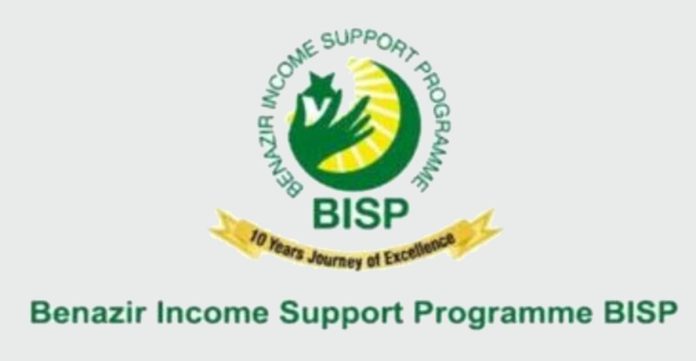
ISLAMABAD, Oct 13 (APP): Chairperson of the Benazir Income Support Programme (BISP), Dr Muhammad Amjad Saqib on Friday said that BISP had been contributing immensely towards supporting the poorest segments of the society through financially empowering them, not promoting beggary and charity.
He was speaking as a guest of honor in a training workshop titled “Social Protection Course Pakistan” held here at a hotel.
The remarkable initiative organized by German Cooperation, Oxford Policy Management, the Sustainable Development Policy Institute (SDPI), and the Deutsche Gesellschaft für Internationale Zusammenarbeit (GIZ), brought together thoughtful leaders, policymakers, and change-makers to discuss and explore the crucial role of social protection in shaping a more equitable society.
Addressing the participants, Dr Amjad Saqib underscored the significance of a welfare state, emphasizing that the government of such a state makes life easier for its citizens.
He reminded that nobody realizes that Pakistan is the biggest welfare state in the world as it has been supporting 9.3 million families by providing them financial assistance, benefitting overall around 60 million people.
He said that countries like Sweden, Norway and Denmark are welfare states but these countries do have not much population and they might not support as much number of families. However, with meager resources and much poverty, Pakistan is supporting over nine million families financially.
“No doubt BISP is providing a very modest amount to the families but still this is a great step towards turning this country into a welfare state in true spirit”, Dr. Amjad Saqib said.
“Despite our financial constraints, we are extending financial support to the people with compassion and love in a country where tax to GDP ratio is only 8 to 9 percent”, he said.
The Chairperson said, “We are trying to assure the poorest of the poor in this struggle against poverty that you are not alone, we are standing as a community and as a society. Our support is too small but this reflects how we think about you. We believe your children should go to school and excel in their lives”.
He emphasized that the provision of social protection to deprived individuals is not the sole responsibility of the government; it is a shared duty that extends to individuals and society as a whole.
“We, as a society, are not merely policy-makers but also implementers. To truly understand the struggles of marginalized people, we must engage ourselves with them closely, empathize with them about their issues, and recognize the paramount importance of social protection,” he added.
He said that BISP provides additional financial support to its beneficiaries, empowering them to overcome life’s challenges and this support is an expression of love and solidarity with those in need.
Dr. Amjad Saqib highlighted that with limited resources, BISP is currently providing financial assistance to nearly 10 million deserving families through the Benazir Kafaalat Programme.
Additionally, under the Benazir Nashonuma initiative, BISP is offering stipends to one million pregnant, and lactating women, along with the infants to address the issue of stunting and malnutrition whereas, eight million students are benefiting from the Waseela-e-Taleem Programme.
In his closing remarks, Dr. Amjad Saqib issued a powerful call to action, reminding the course participants that they had been chosen by Allah to learn about social protection and its potential to help the less fortunate.
In his remarks, Vaqar Ahmed Executive Joint Executive Director SDPI said the training sessions imparted great knowledge and left almost all of us enlightened with social protection legal policy and regulatory frameworks.
He said the courses had shed light on social protection facets and the implementation side.
He noted that the BISP’s effective use of data, digitalization and technology was a lesson learnt as it helped reduce transaction time for relief during COVID-19 and the floods of 2022.
OPM Country Director Abdur Rauf Khan said social protection needs a bottom-to-top approach whereas BISP has come a long way from emerging as a social protection initiative.
Dr. Franz von Roenne, German Development Organisation, Programme Director, SP-SHP said there is no development just cooperation in our endeavours as cooperation between the countries is not related to development.
However, Germany cannot move under its own development unless it moves with Pakistan in development, he added.
Cooperation, he said is the basis of social protection so that no one can be the protagonist but an agent of social protection.
Dr. Esther Schüring, Team Leader, said the engagement level throughout the course was commendable which was an important factor.
“We covered some of the key components of social protection and what can be changed to make it work effectively for Pakistan including the available tool’s effective employing for promising outcomes,” she added.
Helene Paust, First Secretary for Development Cooperation, Embassy of Germany said Germany and Pakistan have been working as partners for decades.
However, our focus has shifted from assistance to social protection initiatives.
After COVID-19, it emerged that social protection instruments were crucial for masses in need, whereas GIZ has increased its portfolio in social protection and more focus on social national adaptation, she added.
“It was heartwarming to see representation from all provinces of Pakistan,” she said.
Dr. Amjad Saqib also distributed certificates to the participants, acknowledging their dedication and commitment to learning about social protection and making a difference in the lives of others.